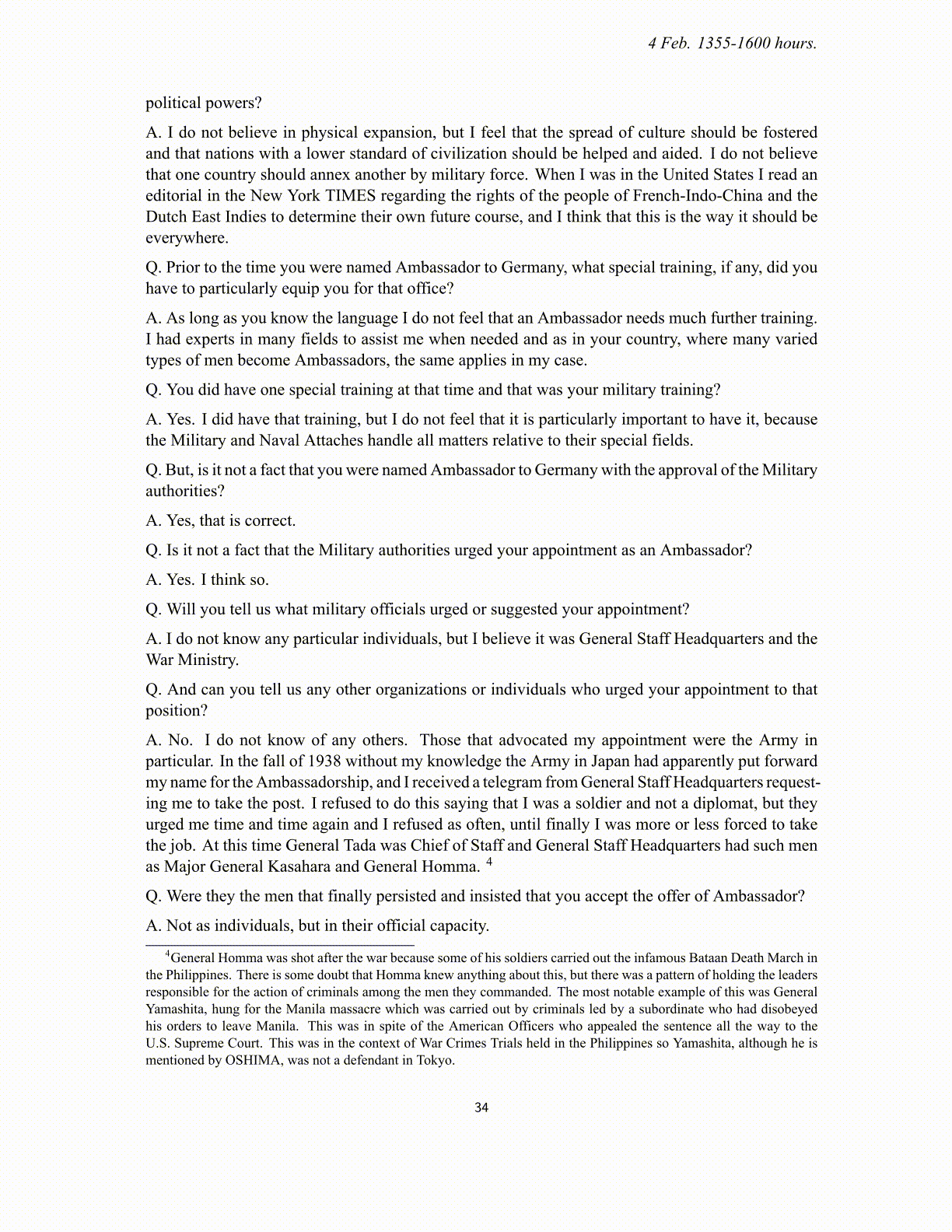
4 Feb. 1355-1600 hours. political powers? A. I do not believe in physical expansion, but I feel that the spread of culture should be fostered and that nations with a lower standard of civilization should be helped and aided. I do not believe that one country should annex another by military force. When I was in the United States I read an editorial in the New York TIMES regarding the rights of the people of French-Indo-China and the Dutch East Indies to determine their own future course, and I think that this is the way it should be everywhere. Q. Prior to the time you were named Ambassador to Germany, what special training, if any, did you have to particularly equip you for that office? A. As long as you know the language I do not feel that an Ambassador needs much further training. I had experts in many fields to assist me when needed and as in your country, where many varied types of men become Ambassadors, the same applies in my case. Q. You did have one special training at that time and that was your military training? A. Yes. I did have that training, but I do not feel that it is particularly important to have it, because the Military and Naval Attaches handle all matters relative to their special fields. Q. But, is it not a fact that you were named Ambassador to Germany with the approval of the Military authorities? A. Yes, that is correct. Q. Is it not a fact that the Military authorities urged your appointment as an Ambassador? A. Yes. I think so. Q. Will you tell us what military officials urged or suggested your appointment? A. I do not know any particular individuals, but I believe it was General Staff Headquarters and the War Ministry. Q. And can you tell us any other organizations or individuals who urged your appointment to that position? A. No. I do not know of any others. Those that advocated my appointment were the Army in particular. In the fall of 1938 without my knowledge the Army in Japan had apparently put forward my name for the Ambassadorship, and I received a telegram from General Staff Headquarters request- ing me to take the post. I refused to do this saying that I was a soldier and not a diplomat, but they urged me time and time again and I refused as often, until finally I was more or less forced to take the job. At this time General Tada was Chief of Staff and General Staff Headquarters had such men as Major General Kasahara and General Homma. 4 Q. Were they the men that finally persisted and insisted that you accept the offer of Ambassador? A. Not as individuals, but in their official capacity. 4 General Homma was shot after the war because some of his soldiers carried out the infamous Bataan Death March in the Philippines. There is some doubt that Homma knew anything about this, but there was a pattern of holding the leaders responsible for the action of criminals among the men they commanded. The most notable example of this was General Yamashita, hung for the Manila massacre which was carried out by criminals led by a subordinate who had disobeyed his orders to leave Manila. This was in spite of the American Officers who appealed the sentence all the way to the U.S. Supreme Court. This was in the context of War Crimes Trials held in the Philippines so Yamashita, although he is mentioned by OSHIMA, was not a defendant in Tokyo. 34